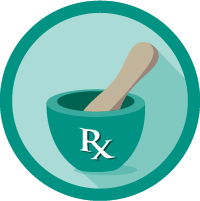Let’s set the scene: You’re standing in front of a towering wall of cold medicines, eyes darting between maximum strength, daytime, non-drowsy, and extra this-or-that. You wonder, “Do I need a prescription for something stronger… or is this enough?”
Welcome to the confusing crossroads of modern medicine: Over-the-Counter vs. Prescription Drugs.
Spoiler alert: your pharmacist holds the map. 🧭
The Basics: What’s the Difference?
Before we dive into when to seek help, let’s clarify what separates these two medication types:
✅ Over-the-Counter (OTC)
You don’t need a doctor’s note for these. They're available on shelves in your local pharmacy and designed to treat mild or short-term issues like:
Headaches and body pain (e.g., ibuprofen, acetaminophen)
Allergies (e.g., antihistamines)
Indigestion (e.g., antacids)
Colds and flu symptoms (e.g., decongestants, cough syrup)
They’re considered safe when used as directed, but that’s a big when.
📝 Prescription Medications
These are the big guns — you’ll need a doctor to assess your condition and prescribe:
Antibiotics
Blood pressure or cholesterol meds
Antidepressants or anxiety medications
Insulin or other hormone therapies
Why the red tape? These drugs often have stronger effects, potential side effects, and need more precise dosing.
OTC ≠ Risk-Free
Here’s the catch: “over-the-counter” doesn’t mean “harmless.” In fact, common OTC meds can cause problems if:
You’re taking other medications
You have chronic health conditions
You’re pregnant or breastfeeding
You don’t follow the dosing instructions
Example: Taking a decongestant while on blood pressure meds? Not a good mix.
Using aspirin regularly? It could raise your risk of internal bleeding.
Pop too many antacids? You could block the absorption of your other meds.
✨And that’s where your local pharmacist comes in.✨
When Should You Ask Your Pharmacist?
Pharmacists are like the Google Maps of medication — they know all the routes, shortcuts, and roadblocks. Here are five perfect times to tap into their wisdom:
1. You’re on Other Meds
Drug interactions are sneaky. Your pharmacist can tell you if your cold medicine will clash with your allergy pills or blood thinners.
2. You Have a Health Condition
Diabetes, asthma, heart disease — these change the game. Some OTC drugs can worsen symptoms or mess with your treatment.
3. You’re Pregnant or Breastfeeding
Many ingredients pass through to your baby. Before you pop anything, get advice from someone who understands the risks.
4. You’re Not Sure What to Choose
“Extra strength” doesn’t always mean extra effective. Your pharmacist can point you to the right product.
5. Nothing’s Working
Still coughing after a week of syrup and lozenges? It might be time to escalate. Your pharmacist can suggest whether you need to see a doctor — or try a different remedy.
Meet Your Friendly Neighborhood Pharmacist
In the age of Dr. Google and influencer-endorsed wellness hacks, it’s easy to forget that pharmacists are licensed healthcare professionals.
They’re trained to:
Explain side effects
Recommend alternatives
Help you manage chronic meds
Keep you safe — without charging for a consultation
And bonus: no waiting room required.
TL;DR (too long; didn't read?) – Here’s the Quick Hit
OTC Meds
Prescription Meds
No doctor’s visit needed
Requires a prescription
Used for short-term, mild issues
Treats more serious or chronic conditions
Generally safe when used as directed
Needs monitoring for safety & dosage
Still can cause side effects or interact with other meds
Custom-tailored to your health n
When in Doubt, Ask!
If you're ever standing in one of our pharmacy aisles wondering what to grab — or whether what you grabbed is actually safe — skip the guesswork.
Walk up to the counter. Ask your Local pharmacist. Get peace of mind.
Your health deserves more than a coin flip.

